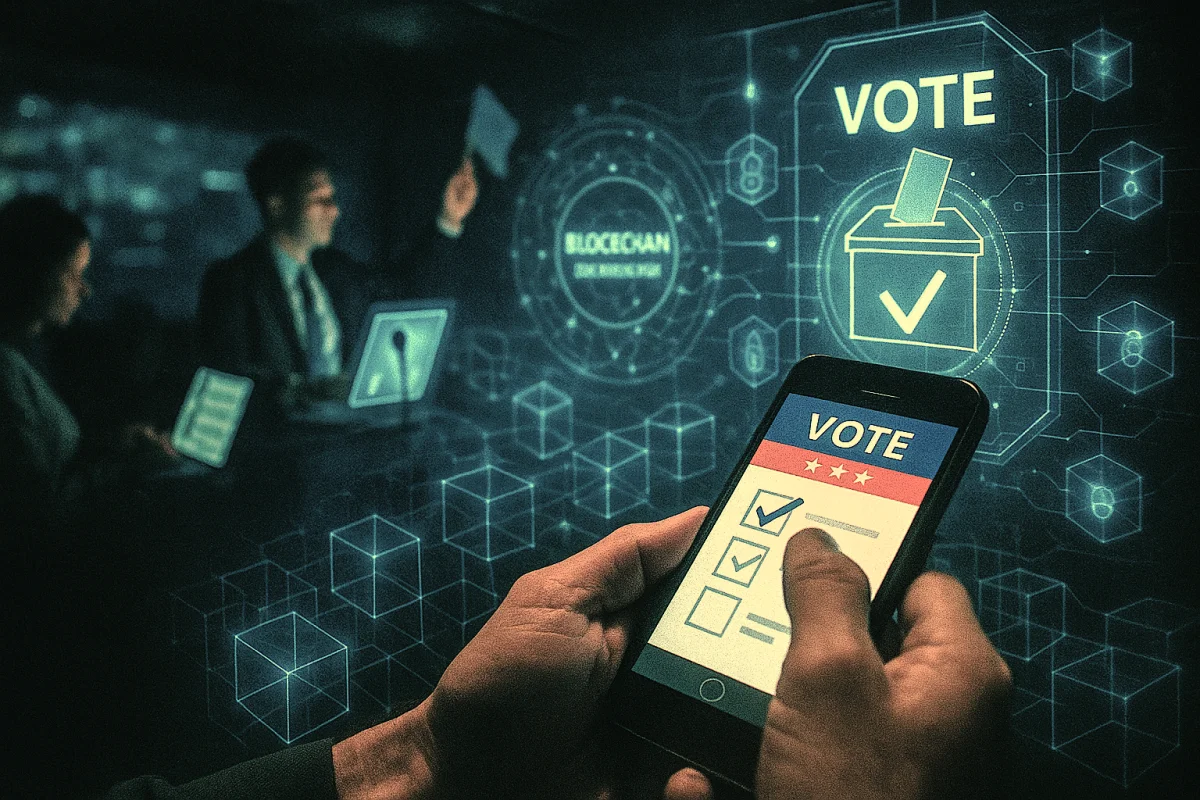How Does a Blockchain-Based Voting System Work?
Voting is one of the fundamental tools of democracy, but traditional systems often raise concerns about transparency, reliability, and accuracy. Blockchain technology has introduced an innovative approach that makes voting more secure, transparent, and accessible. By 2025, governments and organizations around the world are actively exploring the adoption of blockchain-based voting systems.

Why Blockchain?
Blockchain is a distributed ledger system where all information is stored in blocks that cannot be tampered with illegally. Each new block connects to the previous one, forming an immutable chain. This means that voting results cannot be falsified, since any change would need approval from the entire network.
How the System Works
- Registration — voters receive a unique digital identity protected by cryptographic keys.
- Casting a Vote — the voter selects a candidate or option and sends it to the blockchain network.
- Verification — the transaction is validated by the network and added to the chain.
- Transparency — all votes are visible in the public ledger, but anonymized to protect voter privacy.
Advantages
- Security — votes cannot be altered or deleted.
- Transparency — results are open and verifiable for everyone.
- Anonymity — personal data remains protected.
- Speed — counting is automated and instant.
Challenges
Despite its benefits, blockchain voting is not perfect. It requires a strong infrastructure, reliable digital identity systems, and broad public trust. Hackers may attempt to target voters’ devices, which remains a potential risk.
Real-World Examples
Several countries have already tested blockchain systems for elections. Estonia and Spain are among those considering large-scale adoption. Companies such as Voatz and Horizon State are developing platforms that may one day become the new standard for secure, digital voting.
Conclusion
Blockchain-based voting is a technological innovation that has the potential to redefine democracy. It offers security, transparency, and efficiency but still requires rigorous testing and improvements. 👉 Do you think blockchain could fully replace traditional election systems in the future?
✍ Article Author
- Registered: 26 July 2025, 15:34




 Silent Cat 🐾
Silent Cat 🐾